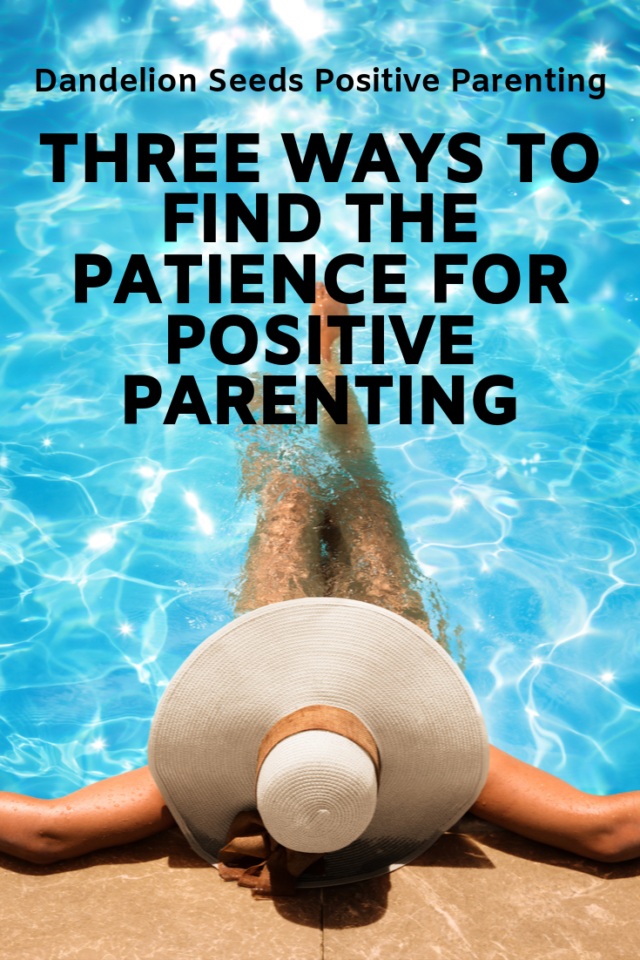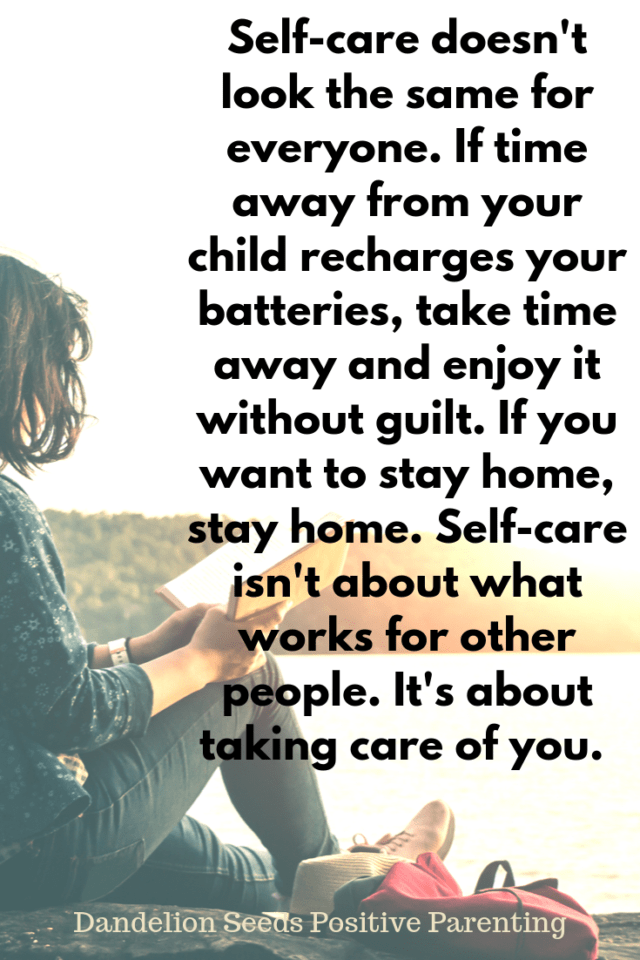
Sign in
Don't have an account with us? Sign up using the form below and get some free bonuses!

We've all had that class—the one we were required to take to fill some requirement, but had absolutely no interest in taking. For me, it was a summer class during grad school. It was called "Miscommunication," and I agreed--it must've been some incredible misunderstanding that I wasn't at the beach. However, as much as it pains me to admit it, that wise old professor taught me some of the most important lessons I've learned in life. And I use them every single day as a parent.
One of the most profound of his statements was this: If you have a good relationship in your life, do everything in your power to preserve it. If there's one "big picture" concept that applies to all relationships, that's it. Studies show that in adult relationships, it takes at least five good interactions to compensate for a single bad one*.
Of course, parent/child relationships have some inherent differences, but the general science still applies. Moreover, our time with our kids is limited, and their impressions of us are forming with every interaction. This is the time we have to build (or rebuild) trust that we're on their side, as Dr. Gordon Neufield explains in this powerful book (afflinks). Even knowing this, parenting is hard. Parenting gently, for many of us, is harder. With all the stressors adults bear, trying to keep it together and parent "right" (whatever that means) can be exhausting.
So, how do you manage to keep your interactions with your kid positive and preserve this ever-so-critical relationship? Where can you find the patience?

I'm not going to suggest self-care the way many other parenting articles do. For those of you who benefit from a spa day or girls' (or guys') night out, that's awesome. If they work for you, by all means, do those things. For me, however, those suggestions only added to my stress. I didn’t want to do the things the articles said I should do. When I read that those were the keys to finding patience with my kid, they just didn't resonate.
My suggestion: take care of yourself by knowing yourself.
If time away from your child recharges your batteries, take time away and enjoy it without guilt. If time away doesn’t bring you peace, you don’t have to go out. You have permission to go. And you have permission to stay home. This is about finding peace for you, not for your next door neighbor.
The more people told me I "had to get out" when my child was little, the more I felt ashamed that I was getting something (else) wrong. It took me awhile to get comfortable enough in my parenting skin to figure out that my outlets for stress are spending time with like-minded parents (together with our kids), and writing. Are those things sexy? Not particularly, but they're me, and they make me happy. Your outlets for stress relief don't have to look "right" to others from the outside. Your way works. Find it. Trust it. Then do it. Being in a good place emotionally—feeling recharged—naturally increases your patience.

A very wise person I know recently reminded a group of adults that "You're raising your son's sons; you're raising your daughter's daughters." The way you interact with your children today will form the "hard wiring" that their brains create and will retain for the automatic responses that come when they're raising their own kids someday. Know your impact. Internalizing that is powerful.
If you can, remember it when your toddler is taking 20 minutes to put on his own shoe; when your daughter is taking forever to finish a song she's been working on before she comes to the table for dinner. Remember, especially when your child is in the most difficult of moods, that you have the power to respond with patience and grace. Be aware that you're teaching your child how to treat his or her children someday. Model the patience you want them to have.
Reflect on who raised you. You have the gift of being able to actively choose what you want to emulate and what you want to avoid. Remember details of the times you felt the safest and most loved; actively choose to repeat history in those ways.
I recently spoke with a friend who was concerned about letting her daughter into her bedroom at night to sleep in a little "nest" of pillows she'd made on the floor. It went against my friend's self-imposed rule that kids need to stay in their own rooms, which had been her parents' rule, too. She then confided in me that one of her warmest memories of her mother was when she'd let her sneak into her room and sleep on the floor next to her parents' bed. As she spoke, I observed her visibly soften when she realized what a gift she could give her little girl by letting her in sometimes.
Review the "rule book" in your head and see if any of those rules might just be written in pencil. Keep the boundaries you need; examine where you can start anew with some fresh ideas that might bring you and your child closer. Feelings of closeness inherently create space for patience with your kids.
One of the wonderful things about our brains is the concept of neuroplasticity: we can create new habits. Our automatic responses today don't have to be the ones to which we default a year from now. You can learn more about this in one of my favorite parenting books by Drs. Siegel and Bryson.
Your children are hard wired to want a good relationship with you. Parents, too, are naturally inclined to love the little people whose lives are entrusted to them. It all starts out exactly as it should. This is, or has the potential to be, one of the very best relationships in your entire life. And in theirs. You have a wonderful ability to preserve it.
For ideas of how to stay calm when you're smack-dab in the middle of a tricky moment with your child, read on to part two of this article. And exhale. You've got this.
_____________________________________________________________
* https://www.gottman.com/blog/the-magic-relationship-ratio-according-science/
After finishing a two-week, multi-age summer class with Teacher Tom, who's an internationally respected teacher and writer, I asked my child what she thought he was really good at. She pondered my question for a moment and thoughtfully replied, "He's really good at sitting."
Well, shoot. At the risk of bragging, I'm a fine sitter, myself. Now that I know it's Teacher Tom's greatest strength (in her mind), I feel compelled to up my sitting game. Would any of you be up for a sitting challenge, or perhaps agree to be my sitting accountability partner?
The thing is, she's right, but in the most complimentary of ways. Case in point: Jimmy, about whom I’ve written before. His name isn't Jimmy, but I'm saying it is to protect his privacy. He's two.
Teacher Tom showed a broken tricycle to Jimmy and a bunch of other kids. Its seat had long since gone missing, leaving nothing but a flat metal bar in its place. The bike had bigger problems, though. The wheels, although still present on the playground, were no longer attached to it. As quickly as you read about the wheels, however, is how quickly another boy absconded with the back ones, using them to drive some invisible vehicle down a long and reasonably steep dirt hill toward parts unknown. By then, some of the children had lost interest in the few pieces of the bike that remained. Jimmy, however, held firm to the one remaining and detached front wheel, and Teacher Tom had an idea.
Despite usually letting kids figure out what loose parts represent, Teacher Tom said, "This is a steering wheel. One of you can use it to drive this wagon." He pointed to a trusty (and rather rusty) metal wagon that he, himself, used as a child. One of the older boys quickly accepted the challenge, but as soon as it started moving downhill, his expression turned to worry and he quickly abandoned the ride. He took the "steering wheel" with him to play elsewhere.
Jimmy, who was by far the youngest and smallest in the class, wasn't giving up on Teacher Tom's plan so easily. Confidently, he walked up to the wagon and said, "I try." It took him a bit of effort to climb in, but he made it. And then, like he did on the tire swing I wrote about in a previous article, he said, "Push."
The wagon wasn't moving on its own, despite pointing downward on the dirt hill. Teacher Tom replied in a respectful tone, "I'm not your Mom. Moms help people. I'm your teacher; teachers will teach you."
Lest I take offense to his comment (hey, I help and teach, don’t I?), his words resonated with Jimmy, and Jimmy started to thrust his body forward, engaging the wheels of the wagon. Holding the steering handle but not turning it, he drove straight into the backpacks that were hanging on the outdoor hooks. Not far. Soft landing.
Teacher Tom straightened the path of Jimmy's wagon and provided him with a brief tutorial about steering. Now, here I am, an adult who knows a thing or two about physics, and a thing or two about two-year-olds. My confidence wasn't great that Jimmy wouldn't end up in a pile of wood chips, or perhaps crash into a gaggle of other little humans. He didn't have a license to drive that thing.
But lo and behold, Jimmy steered correctly, and dang if he didn't make it all the way down the hill without using small bodies as speed bumps or taking out the garden along his way. He drove it...well. Yes, he drove it very well.
Then, looking pleased as a pumpkin, he got out easily and moved on.
So, yeah, Teacher Tom is good at sitting. My daughter is right. But she went on to clarify: "He's good at sitting and waiting to see if kids can figure things out. But if they need him, he helps them."
As parents, our job is to "sit" in a way that allows children to have the time to think critically, to solve problems on their own whenever possible, and to help them finish each day trusting themselves a bit more than they did the day before. They accomplish most of this, of course, through their critical work of play. That's the kind of sitting I want to do.